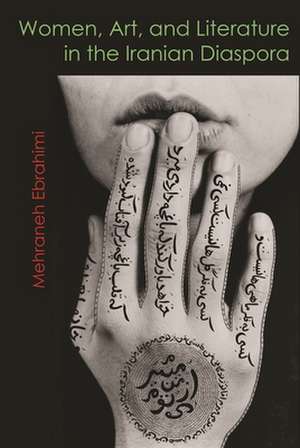Ebrahimi, M: Women, Art, and Literature in the Iranian Diasp
en Limba Engleză Hardback – 31 mar 2019
Preț: 468.38 lei
Nou
Puncte Express: 703
Preț estimativ în valută:
89.65€ • 97.42$ • 75.36£
89.65€ • 97.42$ • 75.36£
Carte tipărită la comandă
Livrare economică 21 aprilie-05 mai
Preluare comenzi: 021 569.72.76
Specificații
ISBN-13: 9780815636359
ISBN-10: 0815636350
Pagini: 212
Dimensiuni: 157 x 235 x 17 mm
Greutate: 0.48 kg
Editura: Syracuse University
ISBN-10: 0815636350
Pagini: 212
Dimensiuni: 157 x 235 x 17 mm
Greutate: 0.48 kg
Editura: Syracuse University
Notă biografică
Mehraneh Ebrahimi is assistant professor of English at York University where she teaches courses in diaspora and world literature. Her research focus is on Middle Eastern literature in light of the ongoing "war on terror".
Descriere
Does the study of aesthetics have tangible effects in the real world? Does examining the work of diaspora writers and artists change our view of "the Other"? In this thoughtful book, Ebrahimi argues that an education in the humanities is as essential as one in politics and ethics, critically training the imagination toward greater empathy.
